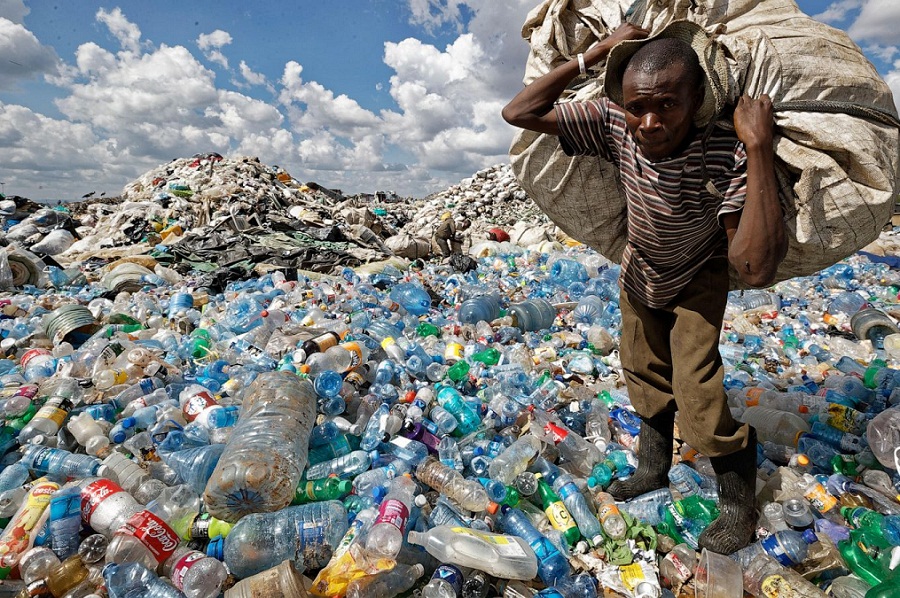Global Plastics Treaty discussions in Paris aim to tackle plastic pollution crisis

Published :
Updated :

As discussions around a global plastics treaty in Paris take place, world leaders and environmental experts are emphasising the urgent need for action to address the escalating plastic pollution crisis.
With only about 9% of waste currently being recycled from the staggering 460 million tonnes of plastic produced each year, the Intergovernmental Negotiating Committee on Plastic Pollution, organised by the United Nations (UN), aims to establish a legally-binding pact to eliminate a greater proportion of plastic waste.
The treaty negotiations, known as INC2, are underway in Paris from May 29 to June 2. The participating countries are expected to contribute key inputs that will form the basis of the first treaty draft, to be finalised before the third round of negotiations scheduled to take place in Kenya in November.
While the treaty's ultimate goal is to reduce plastic waste through various means, such as recycling and reorienting plastic packaging to alternative materials, nations have different approaches.
Some countries, including the United States and Saudi Arabia, advocate for national strategies to tackle plastic waste. Conversely, a coalition called the 'High Ambition Coalition,' consisting of countries like Norway, Rwanda, New Zealand, and the European Union, is pushing for a top-down approach that involves setting global targets to reduce virgin plastic production, eliminate fossil fuel subsidies, and implement other measures.
Jeanne d'Arc Mujawamariya, Rwanda's environment minister and co-chair of the High Ambition Coalition to End Plastic Pollution, stressed the responsibility of protecting human health and the environment from harmful polymers and chemicals. She expressed the coalition's commitment to the cause.
In support of the treaty negotiations, the United Nations Environment Programme (UNEP) released a blueprint earlier this month outlining three key areas of action: reuse, recycling, and reorientation of plastic packaging to alternative materials.
UNEP estimates that implementing government promotion of reuse options, such as refillable bottle systems or deposit return schemes, could reduce 30 per cent of plastic waste by 2040. The report suggests that enhancing recycling practices, removing fossil fuel subsidies, and replacing plastic wraps and sachets with compostable materials could contribute to a further 37 per cent reduction.
However, some environmental groups criticised the UNEP report for focusing too heavily on waste management rather than addressing the underlying issues of chemical control in plastics and reducing plastic production. They argue that effective solutions to the plastics crisis require global controls on chemicals in plastics and significant reductions in plastic production.
In parallel to the treaty negotiations, Mayor Anne Hidalgo of Paris unveiled plans to ban single-use plastics when the city hosts the 2024 Olympic Games. This initiative reflects the growing global consensus on addressing plastic pollution comprehensively. The discussions in Paris highlight the gravity of the plastic pollution crisis and the urgent need for concerted global action.
The outcome of these negotiations will determine the future direction of efforts to combat plastic pollution, with hopes for ambitious targets and clear incentives for plastic recycling. The involvement of all stakeholders, from product design to collection, use, and recycling, will be crucial to address this pressing issue effectively.
msislam8686@gmail.com


 For all latest news, follow The Financial Express Google News channel.
For all latest news, follow The Financial Express Google News channel.